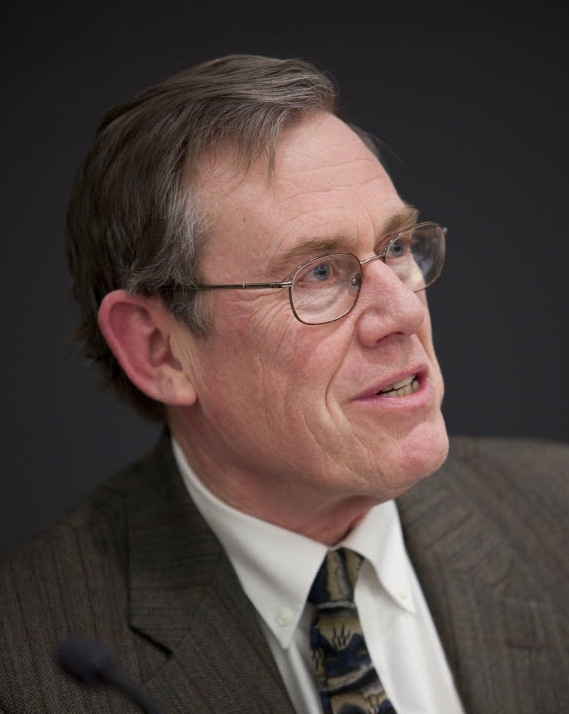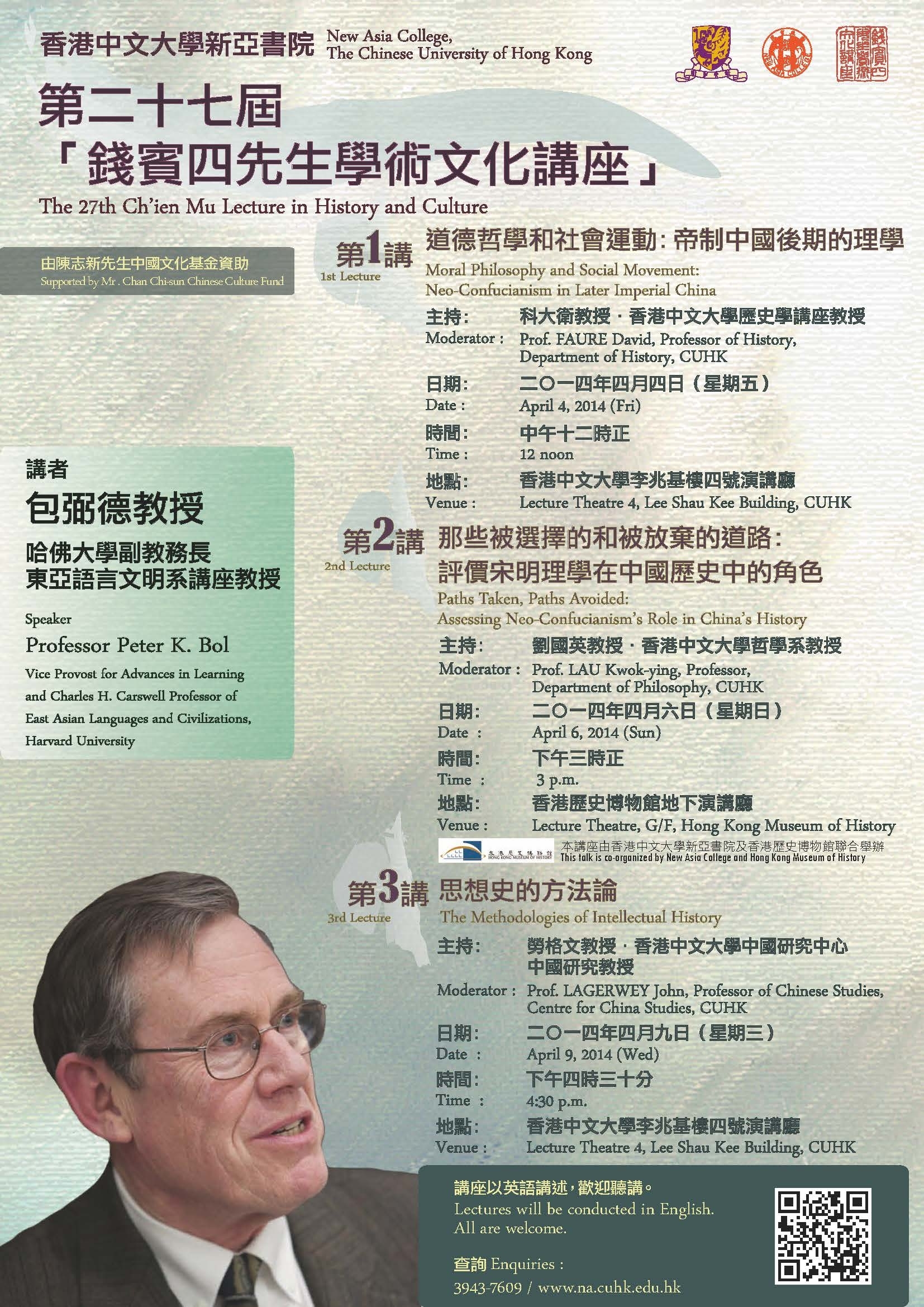Events
The 27th Ch’ien Mu Lecture in History and Culture, New Asia College
4 Apr 2014 - 9 Apr 2014
1st lecture (4/4): 12noon2nd lecture (6/4): 3pm3rd lecture (9/4): 4:30pm
1st lecture (4/4):Lecture Theatre 4, Lee Shau Kee Building2nd lecture (6/4):Lecture Theatre, The Hong Kong Museum of History, Tsimshatsui3rd lecture (9/4):Lecture Theatre 4, Lee Shau Kee Building
Prof. Peter K. BOL, Vice Provost for Advances in Learning and Charles H. Carswell Professor of East Asian Languages and Civilizations, Harvard University
Professor. Bol’s research is centered on the history of China’s cultural elites from the 7th to the 17th century. He led Harvard’s university-wide effort to establish support for geospatial analysis in teaching and research, and ; in 2005 he was named the first director of the Centre for Geographic Analysis in 2005. He also directs the China Historical Geographic Information Systems project, a collaboration between Harvard and Fudan University in Shanghai to create a GIS for 200 years of Chinese history. In a collaboration between Harvard, Academia Sinica, and Peking University he directs the China Biographical Database project, an online relational database currently of 70,000 historical figures that is being expanded to cover the Chinese political elite over the last 2,000 years. He is the author of This Culture of Ours: Intellectual Transitions in Tang and Sung China and Neo-Confucianism in History.
Members of the public are welcome. No registration required. Places will be allocated on a first-come, first-serve basis.
Ms. Edith Tsang (3943-7944 / edithtsang@cuhk.edu.hk)
1st Lecture: Moral Philosophy and Social Movement: Neo-Confucianism in Later Imperial China
Can we combine the history of philosophy with the history of society? Some would argue that we cannot, and should not. Neo-Confucianism (Song-Ming Lixue 宋明理學or Daoxue 道學) first took shape as a moral philosophy in the late 11th century, as a rather marginal current in the many streams of literati culture. By the thirteenth century it had also become, despite opposition from the court, a social and ideological movement that was quickly spreading through literati communities in the southeast, and by the end of the thirteenth century was established in the Mongol-ruled north as well. How can we be fair to both its social history and its philosophy?
2nd Lecture: Paths Taken, Paths Avoided: Assessing Neo-Confucianism’s Role in China’s History
The texts of Neo-Confucianism (Song-Ming Lixue 宋明理學or Daoxue 道學) were required reading for China’s educated elite for the last 700 years of the imperial era. It must have made some difference, but how do we assess the consequences of Neo-Confucianism as the nominal ideology of the political and cultural elite? Was this why China fell behind the West? Was this why China remained unified? Can we learn something of importance for China today from the roles Neo-Confucians played in the past?
3rd Lecture: The Methodologies of Intellectual History
Having been declared dead in favor of social history and cultural history, intellectual history is now resurgent in leading History Departments in the US. However, its methodologies are rooted in the study of Mediterranean civilization, not China. Does this mean its methodologies are not relevant to the study of China’s history? Can the study of Chinese thought change the methodologies of intellectual history as a transnational discipline?



